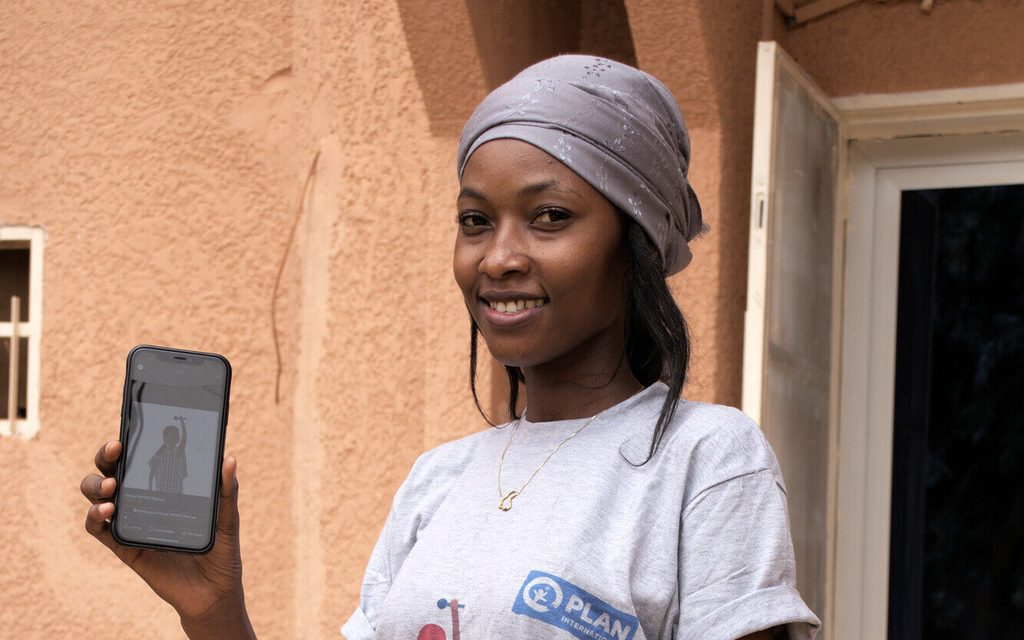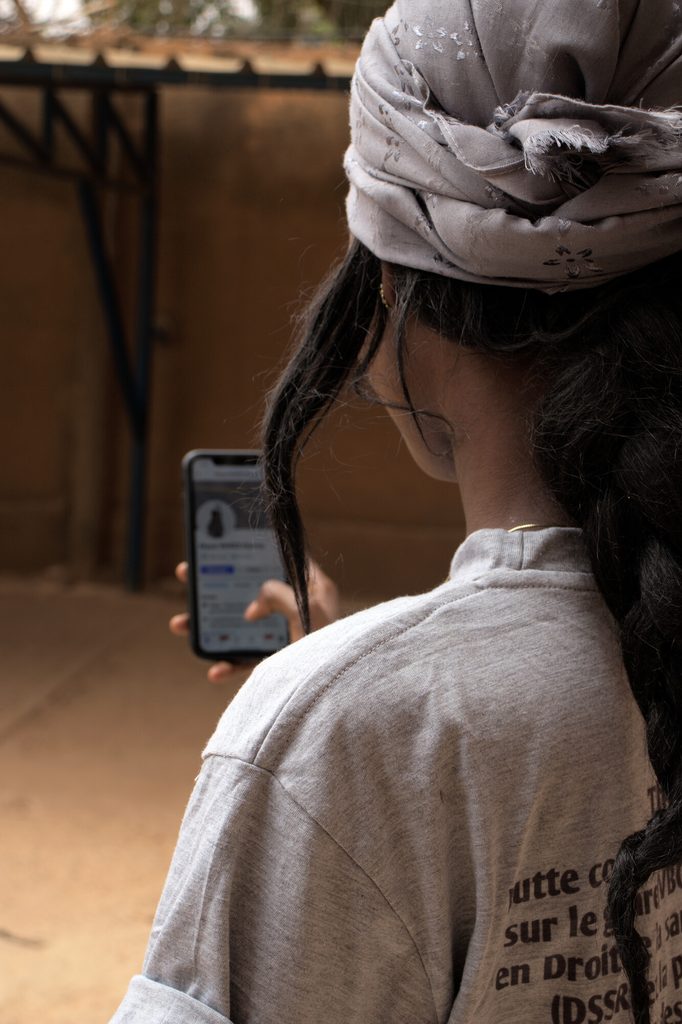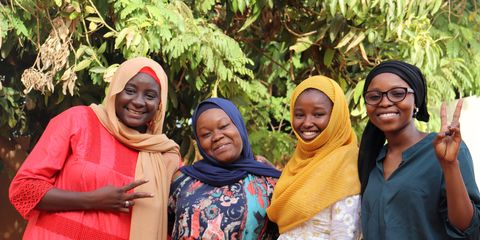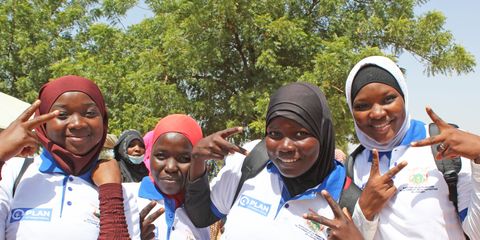In Niger, more than 100 girls are part of the Girls Out Loud group which brings girls together virtually to discuss the issues affecting their lives. The insights from these discussions are used to find solutions to their problems.

A global initiative by Plan International, Girls Out Loud groups have been set up in around 20 countries where the organisation works. The innovative project uses social media platforms to give girls a safe space to openly discuss issues relevant to them. In Niger, the girls have called their group ‘Muryar Imweb’, which means ‘girls’ voices on the web’ in Hausa.
Aïchatou, 26, is the moderator for the Girls Out Loud platform in Niger. “There are exactly 105 girl members aged 14-24 spread across all regions with a quota of girls living with a disability,” she explains. “There is a lot of interaction, we exchange ideas on different themes. Each regional sub-group holds experience sharing session on specific themes every Wednesday evening. This allows everyone to speak, one after the other.”
Giving girls a voice in the changing world
Aïchatou explains that the sharing sessions help to identify the problems faced by girls and to think about possible solutions. One issue that was recently raised has been the abductions of schoolgirls reported both in the capital and in other parts of the country.
“Some girls are still reluctant to speak about taboo subjects and prefer not to express themselves directly. They do it in groups like ours or in private. But others don’t give in and want to tackle all the subjects,” says Aïchatou who is a member of the Nigerien Consultative Framework of Children and Youth.
“Encouraging girls to use social media is a very good idea. They have to know how to take advantage of these sites.”
Aïchatou, Girls Out Loud moderator
The girls from the Muryar Imweb group use both Facebook and WhatsApp as spaces for expression where they can exchange messages with each other and share information. The group members also had the opportunity to meet in person at a training workshop held in March 2023 where they learnt about gender-based violence, online protection and sexual and reproductive health and rights.
“It is since the workshop that things have really started to progress. First, we had to get to know each other and discover the level of engagement each one of us had. Then we discussed how the group should proceed and how we could make the discussions more dynamic. That’s when we came up with the idea of weekly experience sharing.”
A platform including the most vulnerable girls

The girls are encouraged to discuss subjects that they might not have had the opportunity to speak about before. “Even the youngest girls take part. The main thing is to say what you think. As a moderator, I invite the younger girls to express themselves on issues related to menstruation and other subjects. They can also message me privately and I answer them, or if necessary, I do my research and consult other people before answering them.”
The in-person meetings also support girls who have technology barriers, including the most vulnerable in crisis-affected areas. “Some girls can’t join in online because they don’t have a smartphone or they don’t have a stable connection. Sometimes they don’t have the money to buy data and sometimes they can’t charge their phones easily.”
By collecting and analysing the data from the girls’ conversations, their insights are being used by Plan International to make decisions about our future programme work based on the girls’ current interests and problems, helping them lead change in their communities.
“Encouraging girls to use social media is a very good idea,” says Aïchatou, who is an online activist herself. “The girls have to know how to take advantage of these sites. They have to understand the positive aspects, as well as being aware of online violence and fake news. During the workshop, the girls learnt the right way to respond in cases of criticism or disrespectful comments if they wanted to.”

